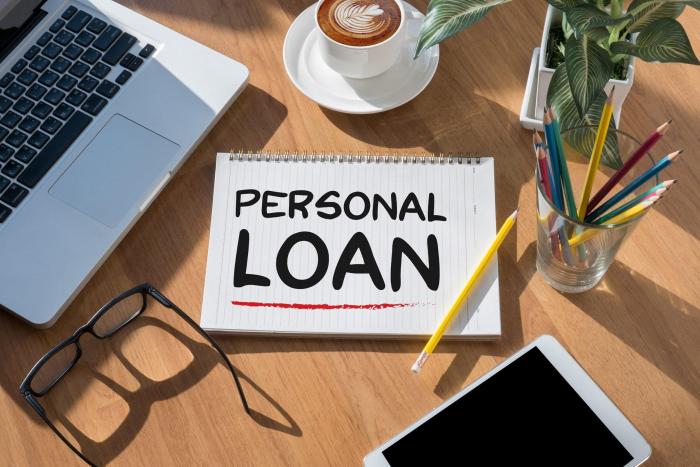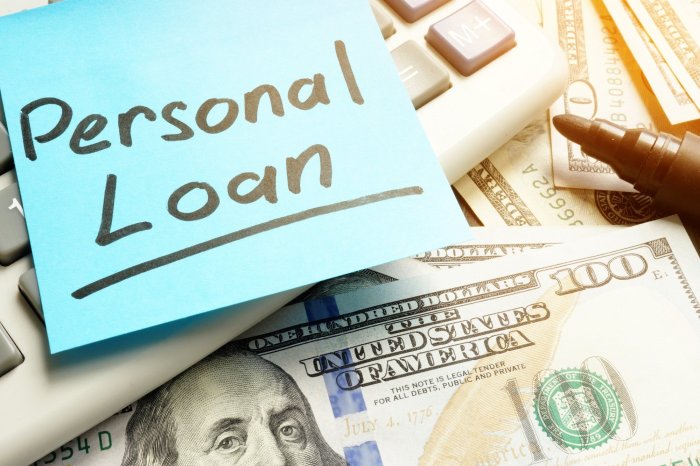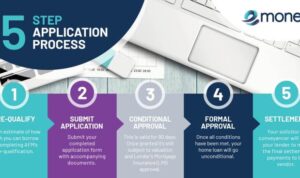Personal loans, a financial lifeline for many, come in various forms and serve different purposes. From understanding the types to managing repayments, this guide dives deep into the world of personal loans with a touch of American high school hip style.
Whether you’re considering a fixed-rate loan or need tips on improving your chances of approval, this comprehensive overview has got you covered. So, grab your textbooks and let’s school you on personal loans!
What are Personal Loans?

Personal loans are a type of loan that individuals can borrow from financial institutions, such as banks or online lenders, for various personal expenses. These loans are typically unsecured, meaning they do not require collateral, and can be used for a wide range of purposes.
Secured vs. Unsecured Personal Loans
Secured personal loans are backed by collateral, such as a car or a house, which the lender can seize if the borrower defaults on the loan. On the other hand, unsecured personal loans do not require any collateral but may have higher interest rates to compensate for the increased risk to the lender.
Common Reasons for Applying for Personal Loans
- Debt Consolidation: Many people use personal loans to consolidate high-interest debt into a single, more manageable payment.
- Home Improvement: Personal loans can be used to fund home renovation projects or repairs.
- Medical Expenses: Unexpected medical bills can be covered with a personal loan.
- Weddings: Some individuals take out personal loans to finance their dream wedding.
- Travel: Personal loans can also be used to fund vacations or travel adventures.
Types of Personal Loans

When it comes to personal loans, there are various types available to meet different financial needs. Let’s explore some common types of personal loans and their features.
Fixed-Rate Personal Loans
Fixed-rate personal loans have a set interest rate that remains constant throughout the loan term. Borrowers know exactly how much they need to repay each month, making budgeting easier. These loans are ideal for those who prefer stability and predictability in their payments.
Variable-Rate Personal Loans
On the other hand, variable-rate personal loans have interest rates that can fluctuate based on market conditions. While the initial rate may be lower than fixed-rate loans, borrowers face the risk of higher payments if rates increase. These loans are suitable for individuals who are comfortable with some level of uncertainty.
Debt Consolidation Loans
Debt consolidation loans allow borrowers to combine multiple debts into a single loan with one monthly payment. This can help simplify finances and potentially lower the overall interest rate. It is a popular option for those looking to streamline their debt repayment process.
Requirements and Eligibility Criteria
The requirements for personal loans vary depending on the lender and the type of loan. Generally, lenders consider factors such as credit score, income, employment status, and debt-to-income ratio when determining eligibility. Meeting these criteria can increase the chances of loan approval.
Short-Term vs. Long-Term Personal Loans
Short-term personal loans typically have a repayment period of up to 3 years, while long-term loans may extend beyond 3 years. Short-term loans usually have higher monthly payments but lower overall interest costs, making them suitable for those looking to pay off debt quickly. On the other hand, long-term loans offer lower monthly payments but higher interest expenses over time. Borrowers need to consider their financial goals and capabilities when choosing between these two options.
Applying for Personal Loans
When it comes to applying for personal loans, there are a few key steps to keep in mind. Lenders will look at various factors to determine your eligibility for a loan, so it’s important to be prepared and understand what they are looking for.
Application Process
- Gather necessary documents: Be ready to provide proof of income, identification, and any other documentation required by the lender.
- Fill out the application: Complete the loan application form with accurate and up-to-date information.
- Submit application: Once you have filled out the application, submit it to the lender for review.
- Wait for approval: The lender will review your application and make a decision on whether to approve or deny the loan.
- Receive funds: If approved, you will receive the funds in your account to use as needed.
Factors Considered by Lenders, Personal loans
- Credit score: Lenders will typically check your credit score to assess your creditworthiness.
- Income: Your income level will play a role in determining how much you can borrow and your ability to repay the loan.
- Debt-to-income ratio: Lenders will look at your debt-to-income ratio to see if you can afford to take on additional debt.
- Employment history: Having a stable job and income can improve your chances of getting approved for a loan.
Tips for Approval
- Improve your credit score: Paying bills on time and reducing debt can help boost your credit score.
- Lower your debt-to-income ratio: Pay down existing debt to improve your chances of getting approved for a loan.
- Provide accurate information: Make sure all information on your application is correct and up-to-date.
- Shop around: Compare offers from different lenders to find the best terms and rates for your personal loan.
Managing Personal Loans
When it comes to managing personal loans, it’s essential to have a solid plan in place to ensure timely repayments and avoid any financial pitfalls. Let’s dive into some strategies and tips for effectively managing personal loan debt.
Creating a Repayment Plan
- Start by creating a budget that includes your loan repayment amount.
- Set up automatic payments to avoid missing due dates.
- Consider making extra payments to reduce the principal amount and save on interest.
Communicating with Lenders
- If you’re facing financial hardship, reach out to your lender to discuss possible solutions.
- Negotiate for lower interest rates or extended repayment terms if needed.
Avoiding Default
- Defaulting on a personal loan can lead to serious consequences like damage to your credit score.
- It can also result in legal action and additional fees or penalties.
Paying Off Debt Responsibly
- Focus on paying off high-interest debts first to save money in the long run.
- Avoid taking on more debt while working on paying off your personal loan.
- Track your progress and celebrate small victories to stay motivated.





